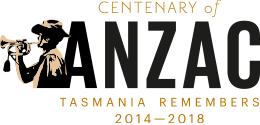Ettie Rout

•Soldiers from Australia, New Zealand and South Africa with Ettie Rout of the New Zealand Volunteer Service relaxing on leave during a card game in Paris, France, 1918-09. Australian War Memorial H03654

An informal group portrait of unidentified members of the Australian Graves Detachment, French civilians, a New Zealand staff sergeant, a French soldier and Miss Ettie A Rout, gathered in front of building ruins. France: Picardie, Somme, Amiens Harbonnieres Area, Villers-Bretonneux Area, Villers-Bretonneux.25 July 1919. Photo: Australian War Memorial E05468
Ettie Annie Rout, promoted safe sex and was a woman well ahead of the times.
Ettie was born in Launceston, Tasmania, in 1877, and was raised in New Zealand. Ettie placed health considerations over the moral beliefs of the time.
Rates of venereal infection were high among the Australian troops, about five times higher than among the English troops. The morality of the times meant the authorities did not wish to be seen to be encouraging what was considered “immoral behaviour”.
Ettie understood the impact of diseases such as syphilis. Time spent recuperating could prevent the men from making it to the front line. Syphilis would also be a community problem if the men survived the war. They could later affect their wives and unborn children, who could be born with syphilis. Women (wives or mothers) would also have to deal with diseased men, many of whom suffered mental illness arising from syphilis.
Ettie travelled at her own expense to Egypt and France during World War One.
During the Gallipoli campaign in 1915, Ettie set up the New Zealand Volunteer Sisterhood and invited women aged 30 to 50 to Egypt to care for New Zealand soldiers. Despite government opposition, the first group of 12 volunteers went to Cairo in October 1915.
When Ettie arrived in Egypt in 1916, she became aware of the high venereal disease rate amongst soldiers and directed her formidable talents to doing something about it. The Australian Dermatological Hospital in Egypt was treating both Australian and New Zealand soldiers, and at one stage was receiving 250 new venereal disease patients a day. Many soldiers were hospitalised with venereal diseases without ever having engaged in battle.
Ettie was angered by the lack of any official action, with the traditional response being to either ignore it, or call on the soldiers to practice chastity. She embarked on a campaign of letter writing to Members of Parliament, newspapers and anyone she thought may be able to act on the problem. Her letters were eventually banned from New Zealand newspapers under the war regulations as many groups, notably women’s organisations, objected to her stance on the issue.
Unlike many people, Ettie saw the problem as medical, not moral, and realised that appealing to soldiers to practice abstinence from sex would not work. Ettie carried out research in England among the foremost doctors in the field of venereal disease, and combined the work of several to produce her own preventative kit, containing calomel ointment, condoms and Condy’s crystals. She sold these at the New Zealand Medical Soldiers Club, which she set up at Hornchurch near the New Zealand Convalescent Hospital.
Ettie also advocated the establishment of safe sex brothels, but had no success convincing authorities. Her solution to the venereal disease problem - proper sex education, free prophylactic kits and safe sex brothels - was eminently sensible, but way ahead of her era. Women’s groups in New Zealand were outraged, accusing Ettie of trying to make ‘vice’ safe.
Ettie’s constant lobbying paid off. By the end of 1917, the New Zealand Expeditionary Force had adopted her kit for free and compulsory distribution to soldiers going on leave.
The New Zealand Government gave Ettie no recognition for her role in the kit’s development and adoption.
In April 1918, Ettie went to Paris and set up a safe sex brothel, as brothels were legal in France but not in England. She met troops as they arrived from the front and handed out cards recommending the brothel of Madame Yvonne, who had agreed to run her establishment with safe sex practices.
Ettie’s operation in Paris amounted to a complete social and sexual welfare service for ANZAC soldiers who lined up each day to seek her advice on a wide variety of issues. The French Government decorated her with the Médaille de la Reconnaissance Française which was awarded to civilians for works of benevolence at home or abroad, for her work in Paris and in Villers Brettoneux, where she ran a Red Cross depot from 1919 to 1920.
After the war, Ettie lived in England, where she married long-time friend, Fred Hornibrook, and published books on topics such as safe marriage and health.
Ettie returned to New Zealand in 1936 after her marriage failed, but was not received well by former friends and colleagues. Ettie took an overdose of quinine aboard ship in 1936, having sent out telegrams saying “Ettie died at sea”.
The life of this remarkable woman has been captured by Jane Tolerton in her biography Ettie: A Life of Ettie Rout – ‘Guardian Angel’ or ‘Wickedest Woman’?

